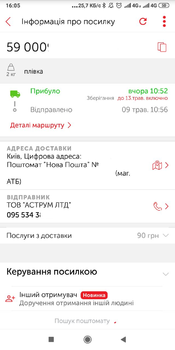Ukrainian names and proper names should just be transliterated from Ukrainian spelling.
this statement calls for a bit of explanation.... I don't know how to do it in very few words. It's very simple but cultural facts can take some words to be explained.... and it's somewhat off-topic relatively to film, but on-topic relatively to Ukraine. So:
Ukrainians use
Париж for
Paris. Пари would a correct transliteration, there is no "ж" and only difficulty is the "р" in french is guttural. Final "s" is almost never pronounced in french. English does a butchery, because "a" in english is not "a" but a diphthong. If you say Paris in english to a French, at first he will not understand, he will hear something like "pèrisse". I am born in a french city named Privas .... the "i" is an i, the "a" is an a, the "s" is mute. In cyrillic it would be, prosto: Прива . I can't imagine what phonetic mess english language can do of that.
you don't yourself apply the rule that you want others to use, as Париж illustrates. And Рим for Roma....
Since the 2010 or so, there has been a strong online activism like Wikipedia articles rewrites and lobbying at media centers, from anglospheric activists and some ukrainians, in order to enforce specifically in the case of ukrainian toponyms and proper names a rule of supposed correct transliteration, that themselves Americans, Brits, Ukrainians/Galicians don't respect the other way around with other people/nations.
See:
- Hasselblad, the famous camera manufacturer, are based in Sweden, city
Göteborg. English says Gothenburg ....
-
København, the capital of Danmark, english says Copenhagen. In fact already over Øresund the name changes, because in swedish it is Köpenhamn...
-
Roma, capital of Italy. English says Rome
-
Venezia, english says Venice
- the capital of Bayern:
München, english says Munich.
etc.
---
moreover the transliteration pushed agressivelly like this, causes weird things. In french, the "h" is mute. So take
Сергей. in ukrainian the "г" is softer and different than in russian, and some "smart" Ukrainians and Brits/Americans decided to transliterate with a "h" instead of a "g". English, german, do pronounce the "h", specially german does a strong "h", but in french "h" is mute....
So these propagandists want all languages written in latin alphabet to use, Serhii, Pavlohrad, etc, the fun is that in french it becomes
Seri, hryvnya -> rivnia , Golodomor -> olodomor, Pavlograd -> pavlorad, etc.
If the "g" is kept in french, then it's phonetically better. So you see why the transliteration in latin alphabet is in fact an anglicism.
-----
every language/country/culture uses its own way to name places due to History and phonetical rules. You know that Polaks say Kijow, Lwow. You know that Tarnopol is named so, because the city was founded by Polak Jan Tarnowski after he defeated Tatars there. Tarno + + greek root "polis" (city) = Tarnopol. Why on hearth would Galicians turn the "pol" that is quite ubiquitous into "pil" always amazes me. Metropole-> metropil, etc. kurwa!
a photo i took in Eastern Hungary, outside city Nyiregihaza. Friends of mine were living there. Local hungarians insist Ungvar is a hungarian city. Ungvar is Uzhgorod, as the signs says. I have funny anecdotes about ukrainians by the border there but this would take too much space.
This name makes me always laugh, because місто (=polish miasto, курва! ) seriously: the regime is banning russian but there is a misto "gorod na reke Uzh". Like "kudi ti idesh? - do mista (Uzh)gorod" Funny eh?
- the capital of Finland, in norwegian/swedish/danish it's
Helsingfors. I buy fly tickets Oslo-Helsingfors or ferry tickets Stockholm-
Åbo, and not Oslo-Helsinki or Stockholm-Turku. Because Finland was just part of Sweden for five centuries, and all old cities were founded by Swedes:
Uleåborg (Oulu),
Tammersfors (Tampere), Åbo (Turku), etc. Swedish is official co-language in Finland because something like 15% swedish minority.
- Germans say Parisss , with a "s", but as told there's no "s" in french. They say
Venedig for Venezia, Krakau for Krakow
- Bruxelles/Brussels french-dutch. when you wait a train for
Tournai the platform may show
Doornik.
- Flemish uses "
Rijsel" for the city of Lille. There was a time is you were not a local from Belgium/Northern France, driving on the external ring of Bruxelles you would not find the exit to Lille because only Rijsel was shown. Similar for roads signs in Flanders showing Bergen for the city Mons and the other way around Wallons don't drive to Antwerpen but to Anvers, even not to Hertogenbosch in Netherlands but to
Bois-Le-Duc.
----
I can show you why it is "Kiev" in romance languages and languages influenced by them.
Giovanni dal Piano dei Carpini, a franciscan monk who was ambassador for pope Innocent IV to the Khan of the Mongols and Tatars in
1246. The Horde had raided large chunks of Eastern Europe and arrived by the realms of Caroligian kingdoms. So the Pope send an ambassy headed by Piano dei Carpini.
online digitalized version of a 1838 work, explaining the sources, etc, and providing the full text. In that PDF scroll for instance down to page 352 :
709.us.archive.org/33/items/relationdesmong00avezgoog/relationdesmong00avezgoog.pdf
"
pervenimus in Kioviam" = we arrived in Kiovia. See: 800 years ago, scholars, in latin, used the form Kiov. There are older texts using Kiov, inside a corpus of chronicles kept in France, under the collective name of "Chroniques de Champagne" from the years 1050, at the time the court of Henri Ist of France traveled to Kiov for the marriage with Ana Yaroslavna....
Over the centuries name varied only a bit: Kiov/Kiev
btw, talking of Ana Yaroslavna, here is the norse telling ("saga") about the life of king Harald Hardråde (1015-1066) who with his cousin Olaf, flew Norway (local wars Paganists/Christians) to Garðaríki, which was the name of the Rurikid kingdom:
Sagan af Haraldi harðráða
it mentions "Jarizleif konung" ... king Jarizleif, also Jariz-Leif like composed Jaris + Leif. This is Yaroslav the Wise. The king with the three daughters. One (Elizabeta, Ellisif in norse) was married to a Norseman/Norwegian (Harald), Ana was married to a French (Henri). There are so two sets of chronicles, small one in norse, bigger ones (due to the weight of latin and Carolingian kingdoms) in latin. The latin as seen uses Kiov and Russ/Rusc, the norse uses a specific scandinavian naming: Garðaríki for all the kingdom, Hólmgarð for Novgorod, no Kiov but Konungrsgarð (textually: king's town). "garð" is probably the origin of the "gorod/grad" word for "city" and hence Novgorod. All this is the Rurikid/Varjag line. Yaroslav was a "cousin". Rurikid nobility still used norse language besides slavonic and some greek for the relations with Miklagarði (Byzance).
Miasto instead is slavonic, stems probably from Malopolska, kurwa.
 ... as for now the company does not "operate", ie. : there's no formal company at the payment level. Instead some guys are operating on their own. But again I am fine with that.
... as for now the company does not "operate", ie. : there's no formal company at the payment level. Instead some guys are operating on their own. But again I am fine with that.

















